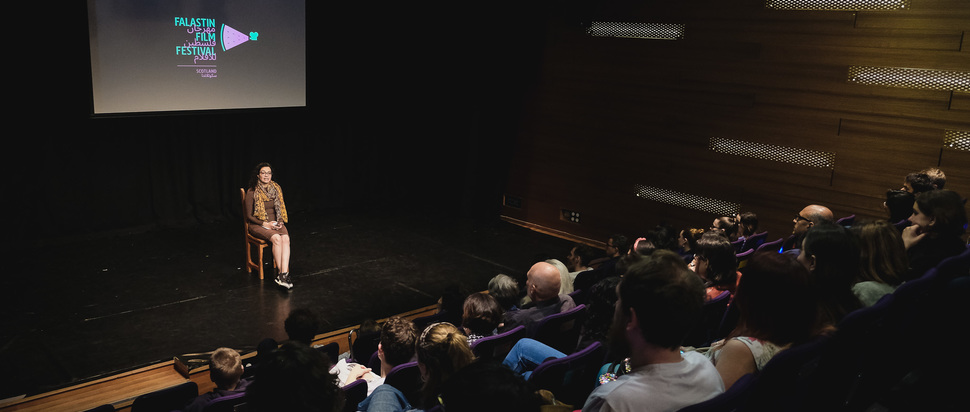Spring Breakers: Five Great Scottish Film Festivals
There's a glut of great film festivals happening in Scotland this spring, covering a myriad of subjects and forms. We look forward to five of them
Dunoon Film Festival
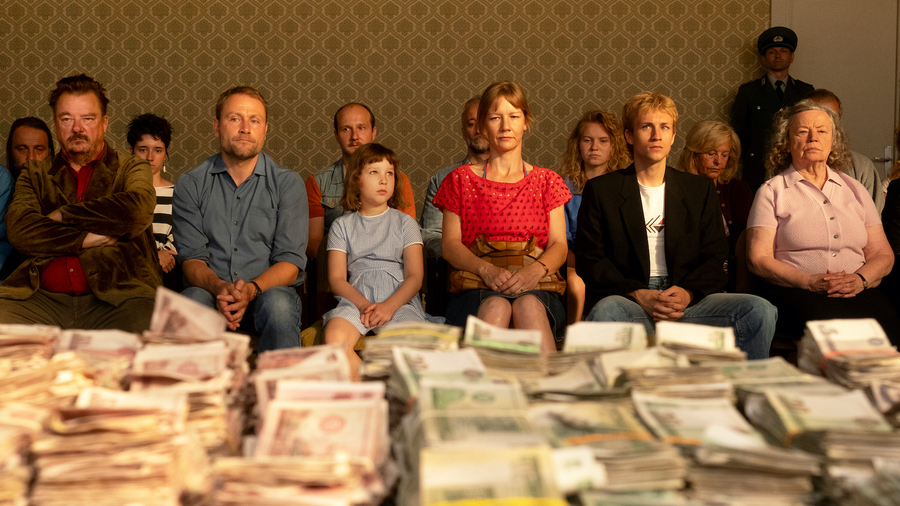
Two to One
Anyone fancy a road trip to the Cowal Peninsula? Dunoon Film Festival is back this weekend, taking place in the spring for the first time, rather than in its usual autumn slot, and it seems to be embracing silent film in a big way in this 11th edition. Opening night will take audiences back to the Roaring Twenties with the sparkling 1927 comedy It, starring Clara Bow. Bow was famously nicknamed “the ‘It’ girl” and you’ll understand why from this magnetic performance as a flapper shopgirl trying to seduce her rich boss. Silent film specialist Neil Brand will provide live piano accompaniment and the screening is followed by a flapper party.
Brand will stick around the festival for two more events: he’ll present a triple bill of films – Charlie Chaplin's The Rink, Buster Keaton's The High Sign and Harold Lloyd's Never Weaken – from the three icons of silent comedy, and he'll present a show celebrating the great comedy duo Laurel and Hardy.
Dunoon’s celebration of classic cinema doesn’t stop there. They’ve a 25th anniversary screening of Oh, Brother Where Art Thou? followed by line-dancing; they’re playing tribute to the late David Lynch with his 1999 film The Straight Story; and there’s a sing-along screening of knee-slapping musical Oklahoma! to mark its 70th anniversary.
In terms of mint-fresh work, there’s first looks at two new films that explore friendship and love. First is Two to One, a comedy caper set during the transitional days of German reunification in the early 90s starring Sandra Hüller. And second, Rúnar Icelandic drama When The Light Breaks, which follows a young art student who is grieving after the death of her boyfriend, with whom she was having an affair in secret as he was in a relationship with another woman. Elsewhere, there are recent arthouse hits like Oscar-winner I’m Still Here, Mark Cousins’s Wilhelmina Barns-Graham documentary A Sudden Glimpse to Deeper Things, and Louise Courvoisier’s delightful coming-of-age film Holy Cow.
Dunoon Burgh Hall, Studio Cinema and Uig Hall in Dunoon, 24-27 Apr
Full programme at whatsondunoon.co.uk
SANDS
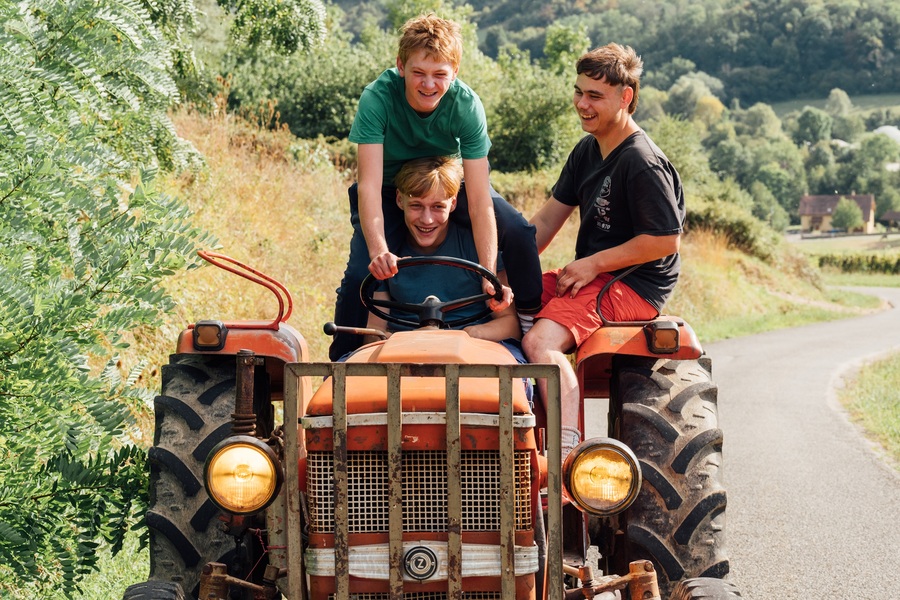
Holy Cow
SANDS is a bit of an outlier in the Scottish festival circuit as it has real Hollywood firepower behind it. It was founded and is significantly financed by the Russo Brothers’ production company AGBO, and those Hollywood connections are evident in the lineup of panels and talks planned. The Russo Brothers, Ant and Joe, best known for their films in the Marvel Cinematic Universe, will be in town for a chat with Caribbean filmmaker Frank E. Flowers. Chaired by AGBO CCO Angela Russo-Otstot, the talk is titled Holding the Door Open, and we’re told it’ll explore “the power of mentorship in building inclusive pathways for emerging filmmakers”.
There’ll also be an on-stage talk with screen icon Joanna Lumley, as well as chats with some people behind the scenes. Musician Kathleen Wallfisch will discuss her career in film, which includes working as music supervisor for Ridley Scott’s Gladiator II and Napoleon. Casting director Kharmel Cochrane – who’s put together the cast for films like Saltburn, Nosferatu and the recent Warfare – will give some insight into the alchemy of bringing the right talent to the screen for both indie and Hollywood projects.
In terms of film screenings, the festival opens with The Ballad of Wallis Island, James Griffiths’ comedy about a music nut who uses the cash from a lottery win to pay his favourite folk duo to reunite and perform on his remote island; Tim Key, Tom Basden and Carey Mulligan star. There’s also screenings of recent titles like Oscar-winning documentary No Other Land, Elizabeth Sankey’s hypnotic cine-essay Witches and Louise Courvoisier’s coming of age debut Holy Cow – the directors of both the latter films will be in St Andrews for Q&As.
“For me, Sands is about fostering connection and strengthening community,” says the festival’s director, Ania Trzebiatowska. “In these complicated times, the empathy that films can evoke feels more vital than ever… I see Sands as both a platform for exciting new voices and a space where passionate, creative people can come together to connect and discuss their work in the film industry.”
Byre Theatre, St Andrews, 25-27 Apr
Full programme at sands-iff.com
Alchemy Film and Moving Image Festival
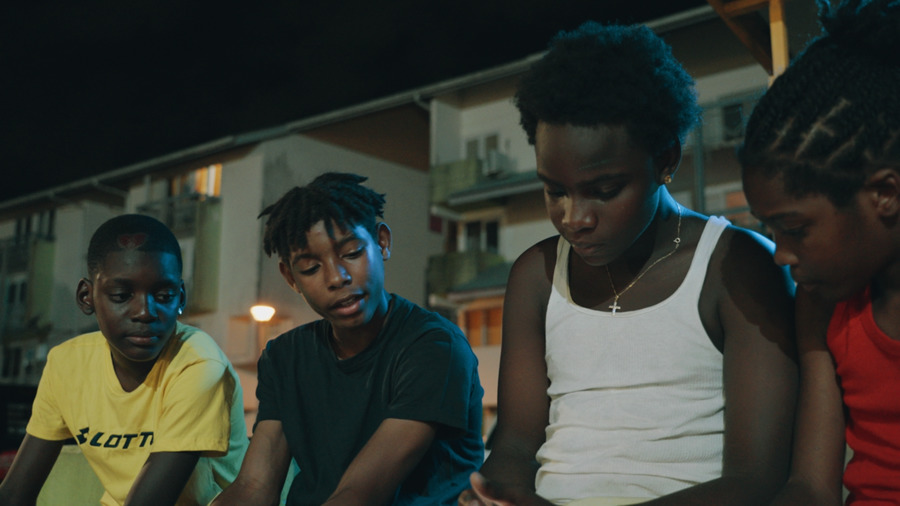
Kouté vwa
This year is the 15th edition of Alchemy Film and Moving Image Festival and, as ever, artists and filmmakers from all over the world will be flocking to Hawick in the Borders for another lively, brainy and extremely welcoming celebration of experimental film and artist moving image. The heart of the festival is a series of finely curated short film and feature programmes taking place in the Heart of Hawick cinema, while around the fringes of the festival you’ll find a network of nine moving-image installations located in nearby pop-up spaces that a free to explore at your leisure.
One highlight and a major coup demonstrating Alchemy’s growing importance on the festival landscape is the UK premiere of Maxime Jean-Baptiste’s debut feature Kouté vwa. Inspired by a tragic incident in Jean-Baptiste’s own family, it’s an intimate, dreamlike blending of fact and fiction following a 13-year-old French boy spending a summer with his grandmother in French Guiana. Another must-attend looks to be Kamal Aljafari’s A Fidai Film, a searing archive film composed from film footage plundered by the Israeli military from the Palestinian Research Centre in Beirut in 1982.
Not content with programming some of the best moving image work from across the world, Alchemy in recent years have become a hub of creativity, with artist residencies and filmmaking workshops producing work for the programme too. Take Rum & Milk, Mark Lyken’s portrait of Hawick’s rich heritage and the importance of the common riding, which Alchemy audiences will see a rough cut of ahead of its world premiere later in the year. Or there's On Weaving, a short film by artists in residence Luke Fowler and Corin Sworn, which sees the Glasgow-based artists respond to High Sunderland, a masterpiece of modernist architecture that was the of home of textile artists Bernat and Margaret Klein and sits in an isolated wood a few miles from Hawick. The festival this year also includes an EP launch from its musician in residence Miwa Nagato-Apthorp, followed by the annual ceilidh.
Heart of Hawick and other venues, 1-4 May
Full programme at alchemyfilmandarts.org.uk
Folk Film Gathering
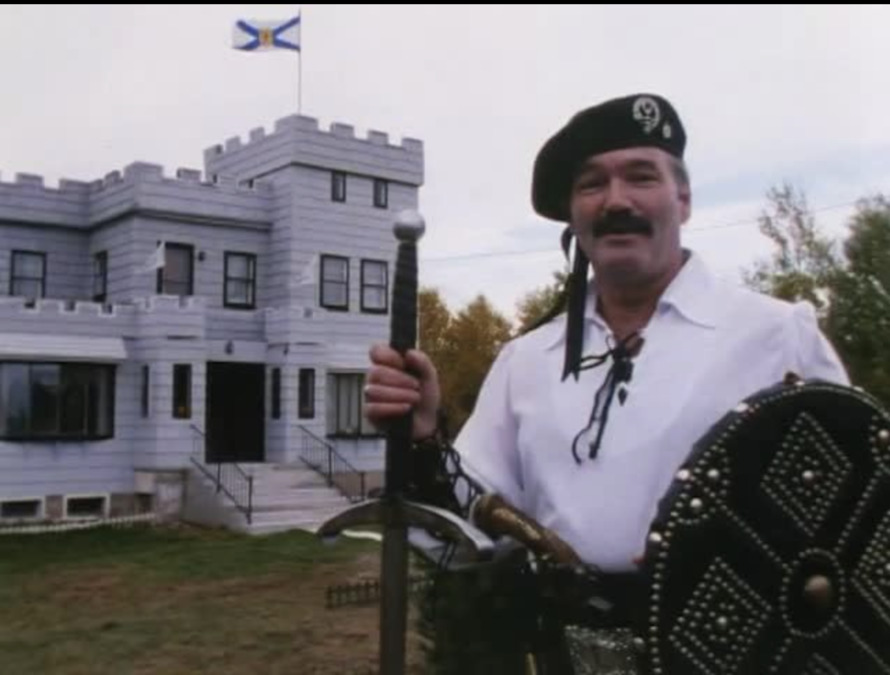
Flight
Edinburgh’s Folk Film Gathering is thought to be the first film festival in the world devoted to folk cinema, and from its inception, it has celebrated both homegrown filmmaking and the best folk cinema from around the globe. It’s also a unique festival in that each screening is usually accompanied by some sort of live music or storytelling performance that complements the work or helps put it in context.
This 11th edition opens on 2 May with a rare screening of Emma Davie’s 1997 road movie Flight. An important document of the Scottish diaspora, Flight explores how Scottish customs continue to be expressed across Canada, from Cape Breton to Nova Scotia, generations after families have left the homeland. The curtain comes down on the event with a day-long celebration of the life and work of pioneering independent Scottish filmmaker Douglas Eadie. And for more local talent, check out the treasure trove of shorts from the 1990s made originally for BBC ALBA’s Geur Ghearr series.
There’s plenty of folk horror on the menu too. From Ireland, there’s The Outcasts, Robert Wynne-Simmons’ haunting 1982 film that’s only re-emerged from obscurity recently after falling through the cracks since its release. A rare showing of the first horror film to be made in the Welsh language, O'R DDAEAR HEN, which concerns a mysterious stone head being unearthed in a council house garden in Bangor, also looks like a must-see.
From further afield, there are films from two countries currently suffering through war. There’s Fertile Memory, the first full-length film to be shot within the occupied Palestinian West Bank ‘Green Line’, which will be introduced by Scottish-Palestinian poet Nada Shawa. And The Enchanted Desna, a magical-realist exploration of the childhood of Ukraine’s greatest filmmaker, Alexander Dovzhenko, directed by the filmmaker’s widow, Yuliya Solntseva. You’ll also find key works from Algeria, Lebanon and Morocco in the programme that very much reaches out in solidarity to communities around the world, as well as looking inward to Scotland’s place in it.
Cameo Picturehouse and Scottish Storytelling Centre, Edinburgh, 2–11 May
Full programme at folkcinemas.com
Falastin Film Festival
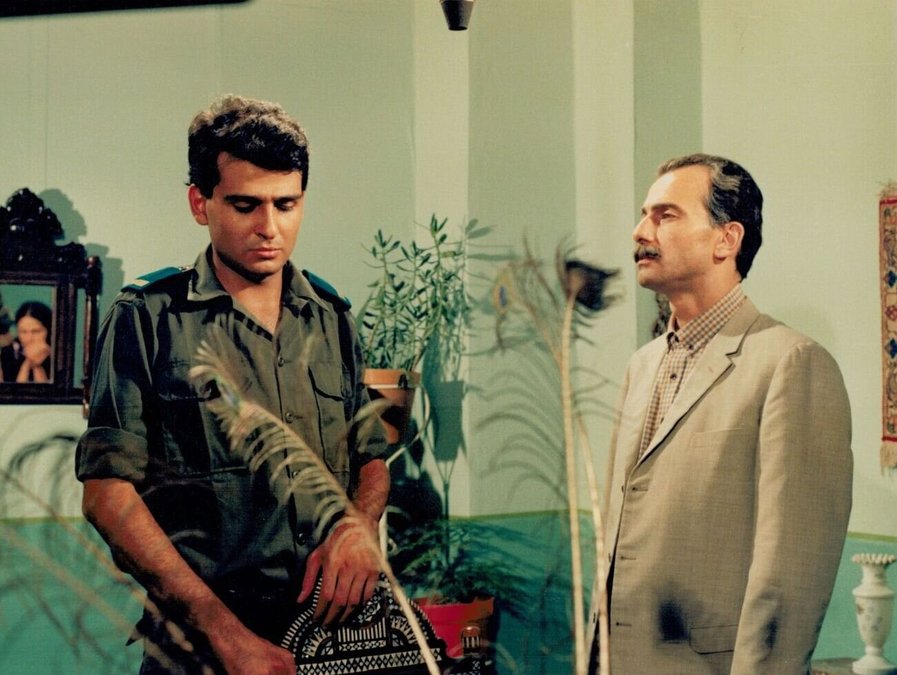
Return to Haifa
Falastin Film Festival began life last year as a grassroots event aiming to celebrate and amplify the voices of Palestinian filmmakers and artists in reaction to the war on Gaza. A year later, and with that brutal war still ongoing, the festival makes a return with a second edition that expands the programme, bringing films to Glasgow as well as Edinburgh, and widening its scope to include not just Palestinian films, but cinema from other nations countries facing Zionist aggression and colonisation. Through their thoughtful curation, the festival team aim “to highlight not only stories of steadfast resistance and cultural preservation but also tales of love and hope”.
The Glasgow leg kicks off with a screening and workshop reflecting on the work of the martyr novelist Ghassan Kanafani. Titled An Ode to Ghassan Kanafani, the event begins with Return to Haifa, the adaptation of Kanafani’s seminal novel of the same name, which the festival describes as “a pinnacle of Palestinian resistance literature”; a workshop on Kanafani takes place after the screening. Another Glasgow highlight is a showing of Elia Suleiman’s decade-spanning absurdist meditation on the plight of Palestine and its people, The Time That Remains.
In Edinburgh, key screenings include From Ground Zero, an anthology film by 22 Palestinian filmmakers documenting life in Gaza over the past year, revealing stories beyond the headlines, and Three Promises, Yousef Srouji’s powerful film about a mother who picks up a camera to document Israeli forces' retaliations after the second intifada in the early 2000s. There are also talks, musical performances and a supper club to take in. The organisers are attempting to use the film festival form as a tool of resistance, and throughout the festival they say they "will be striving to decolonise the narrative around Palestine and equip audiences with the country’s historical context".
CCA, Glasgow, 9-10 May; Scottish Storytelling Centre and Embassy Gallery, Edinburgh, 15-19 May
Full programme at falastinfilmfest.com
